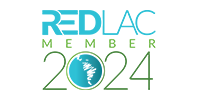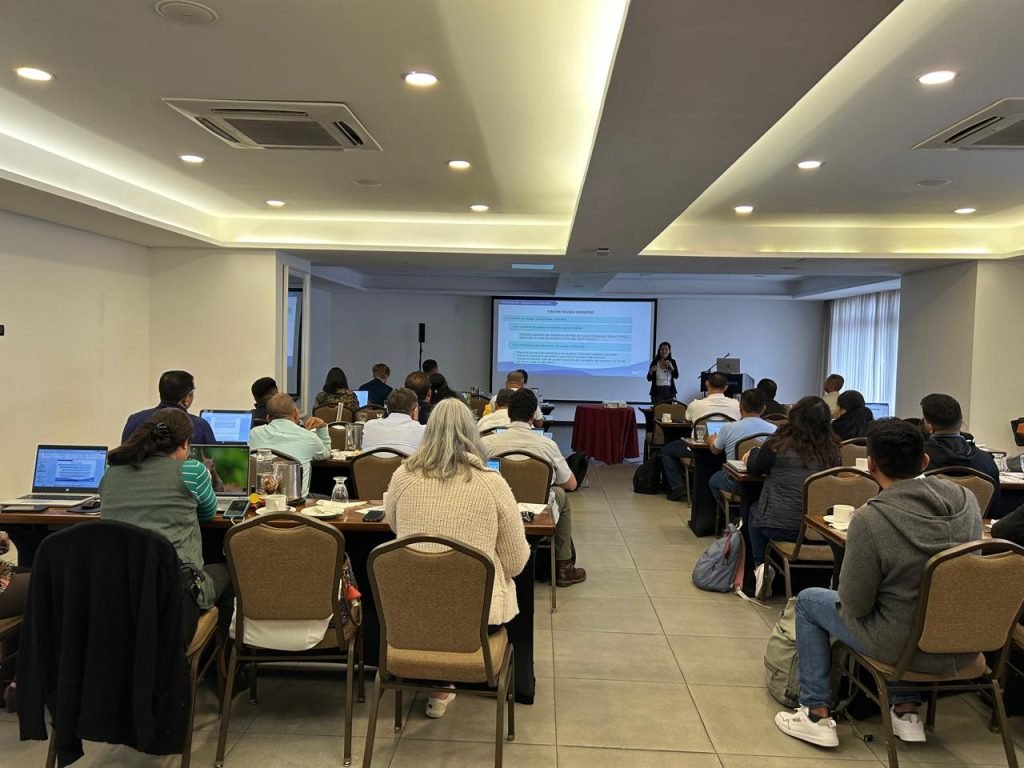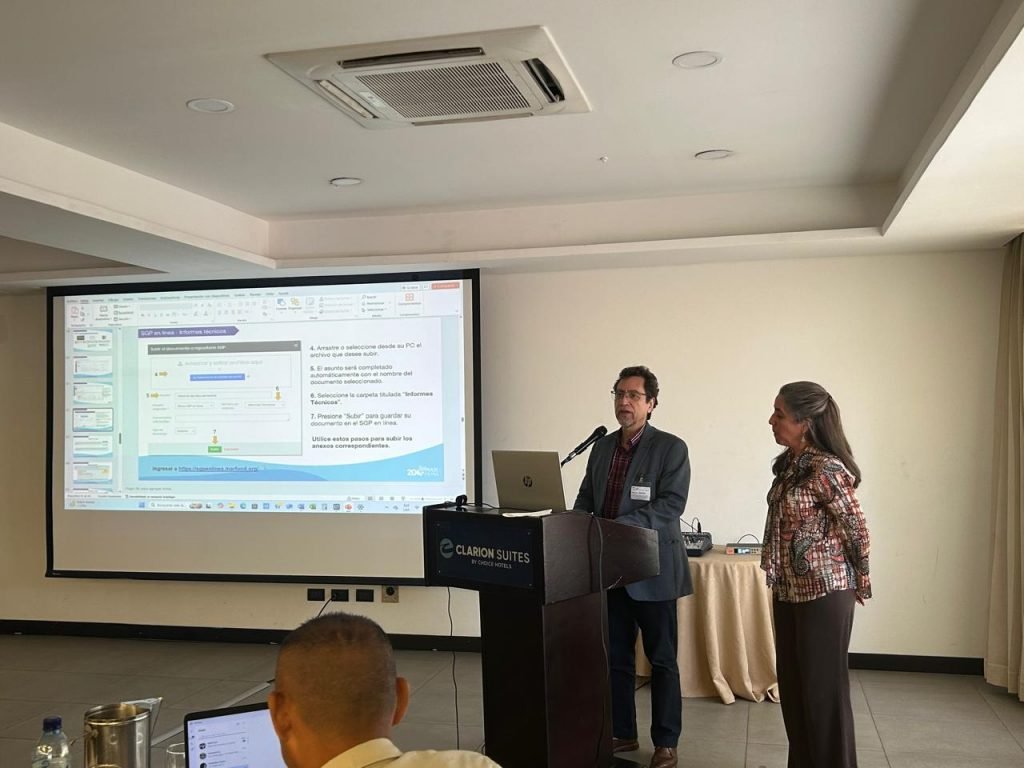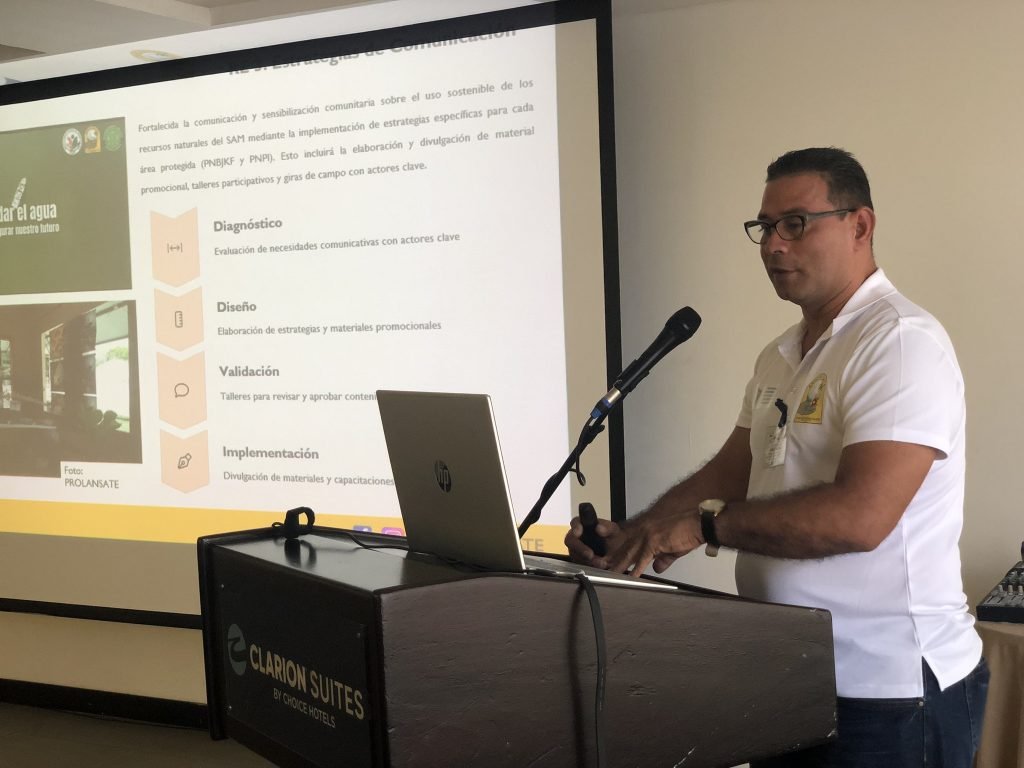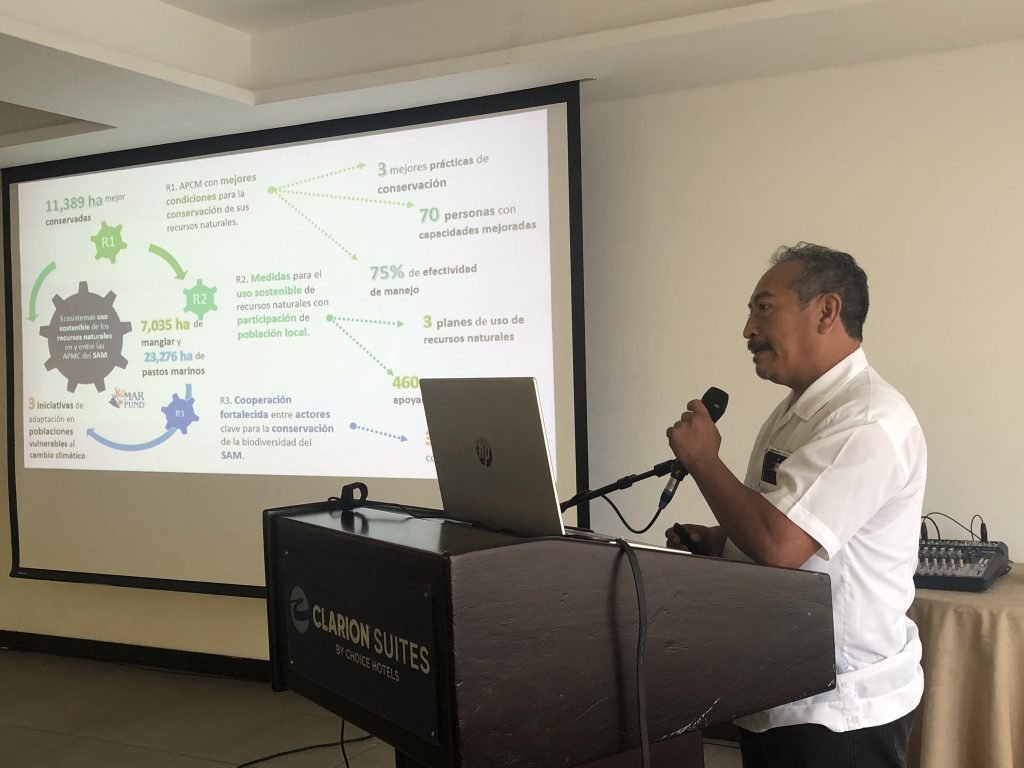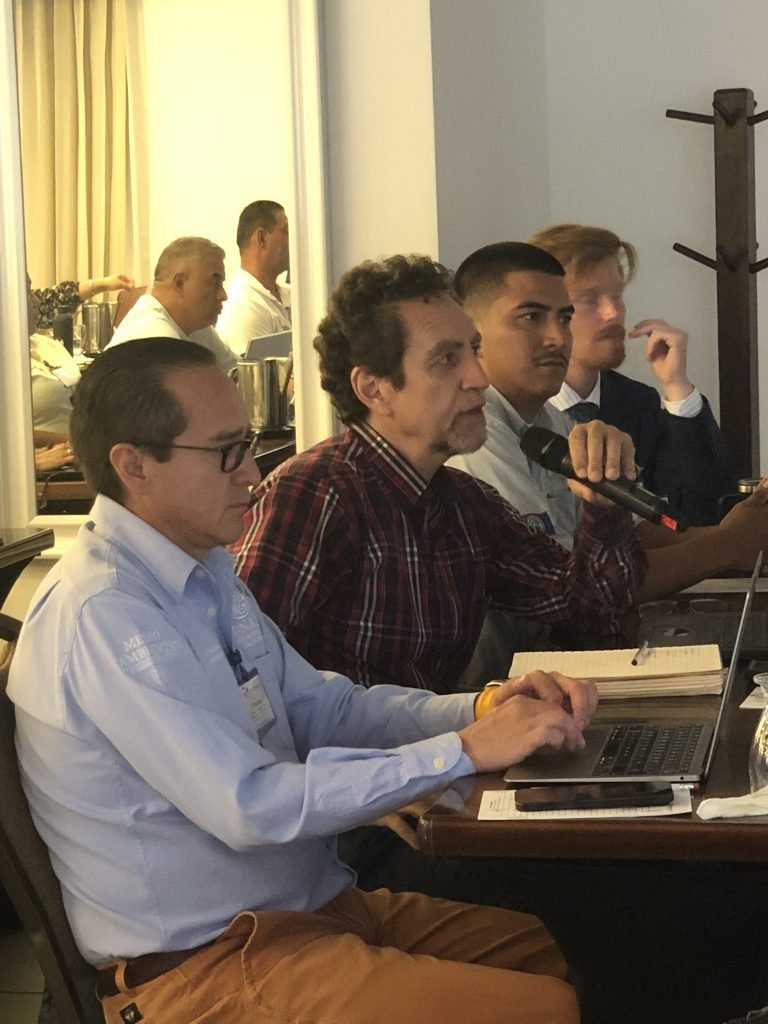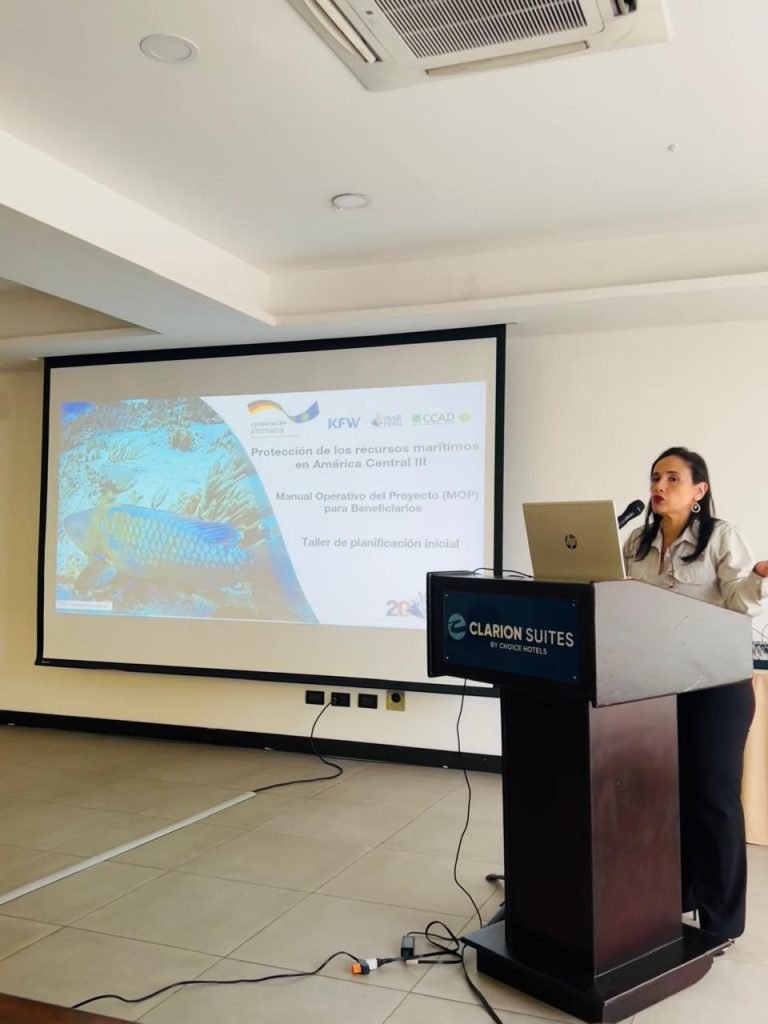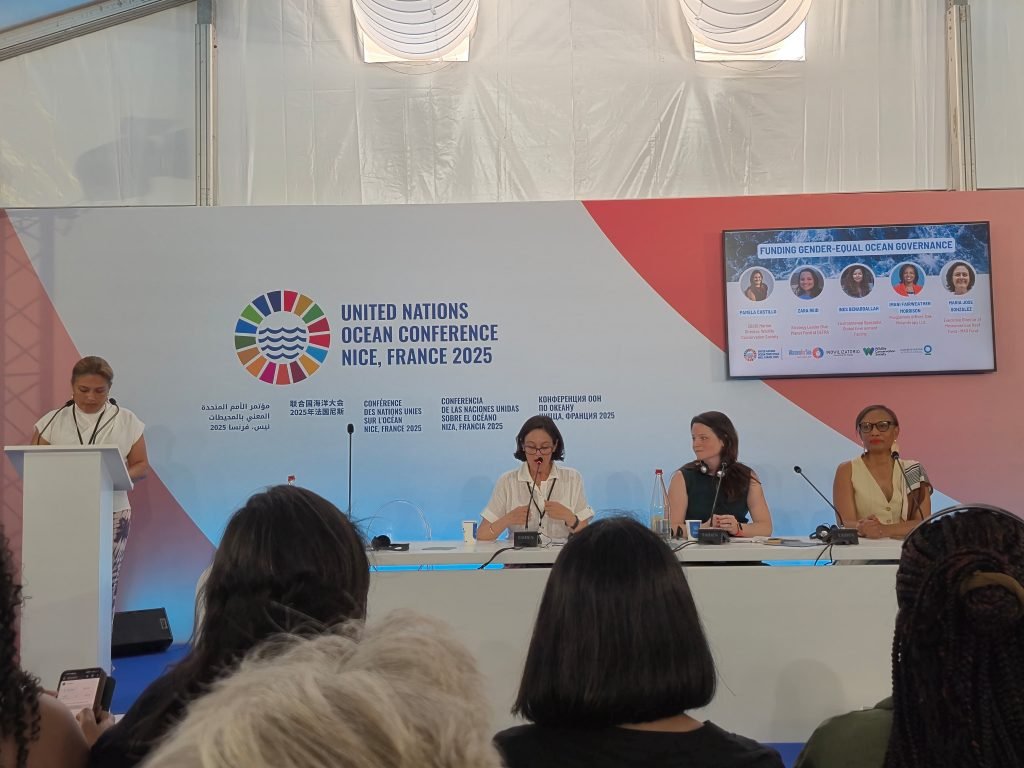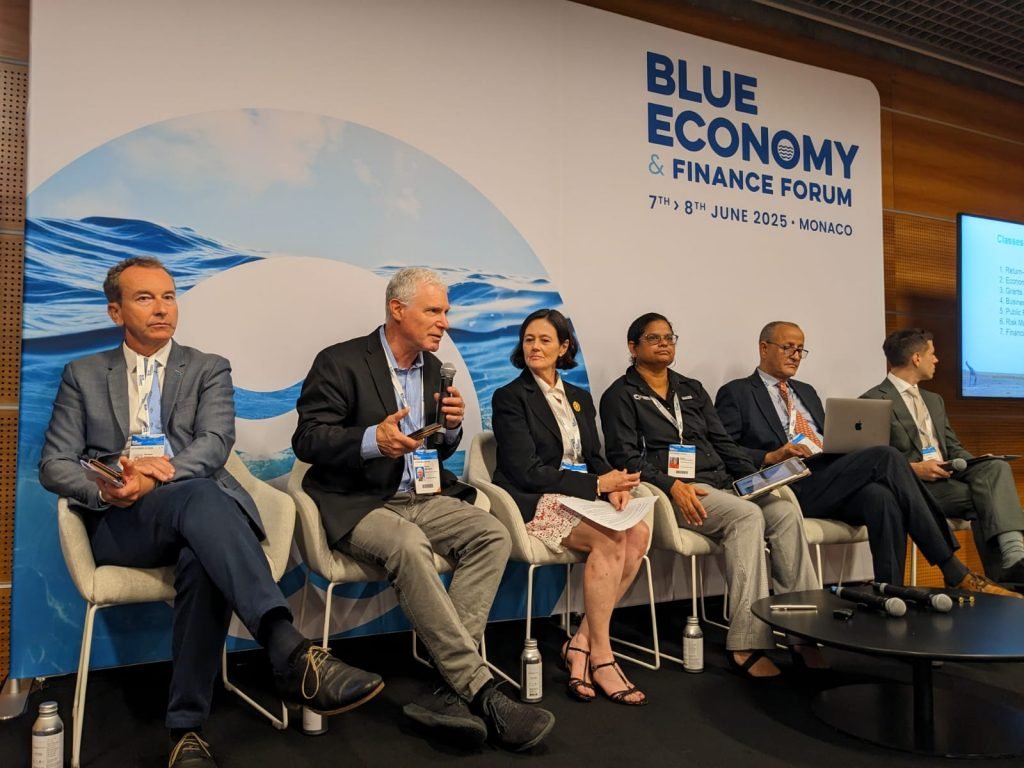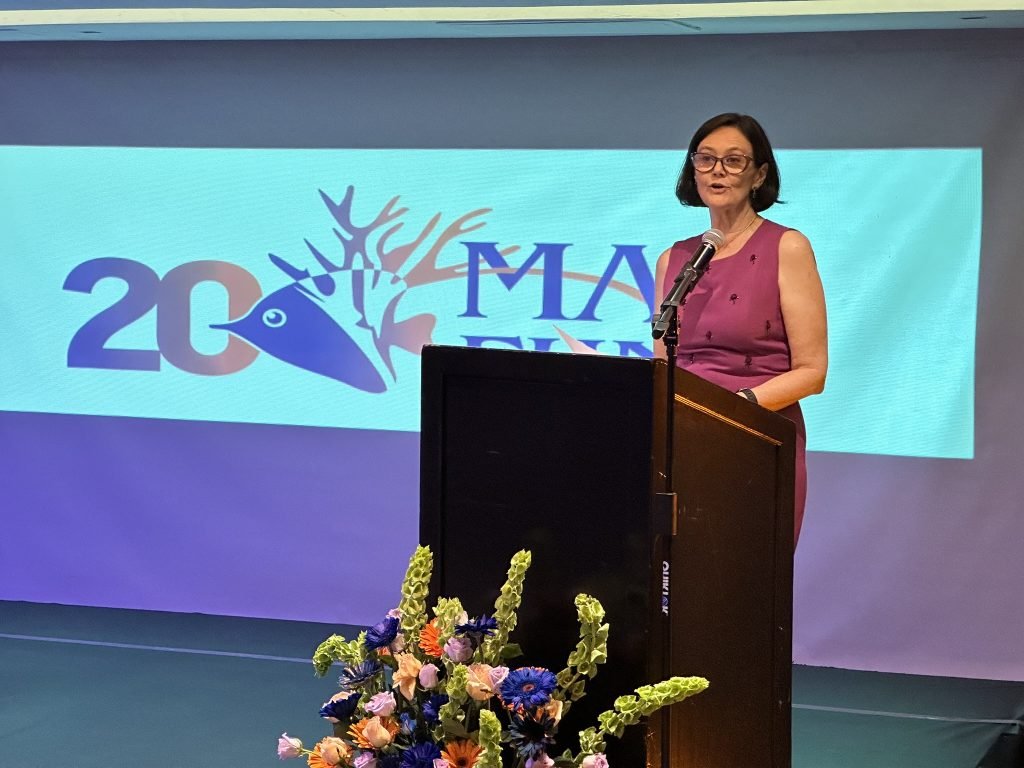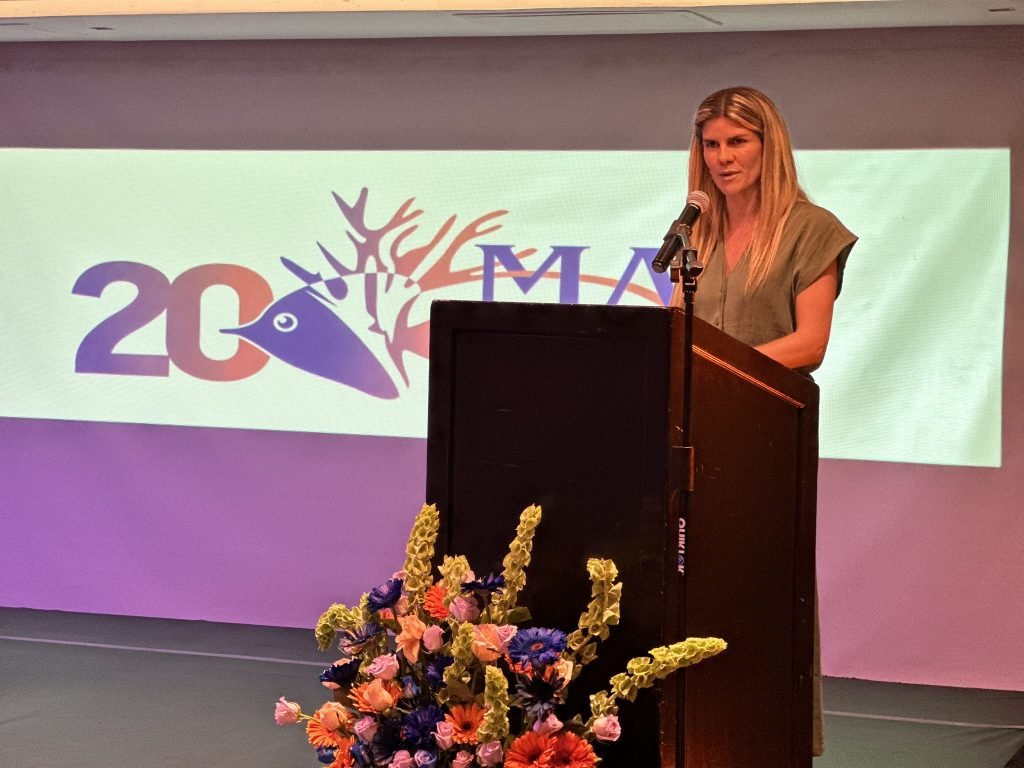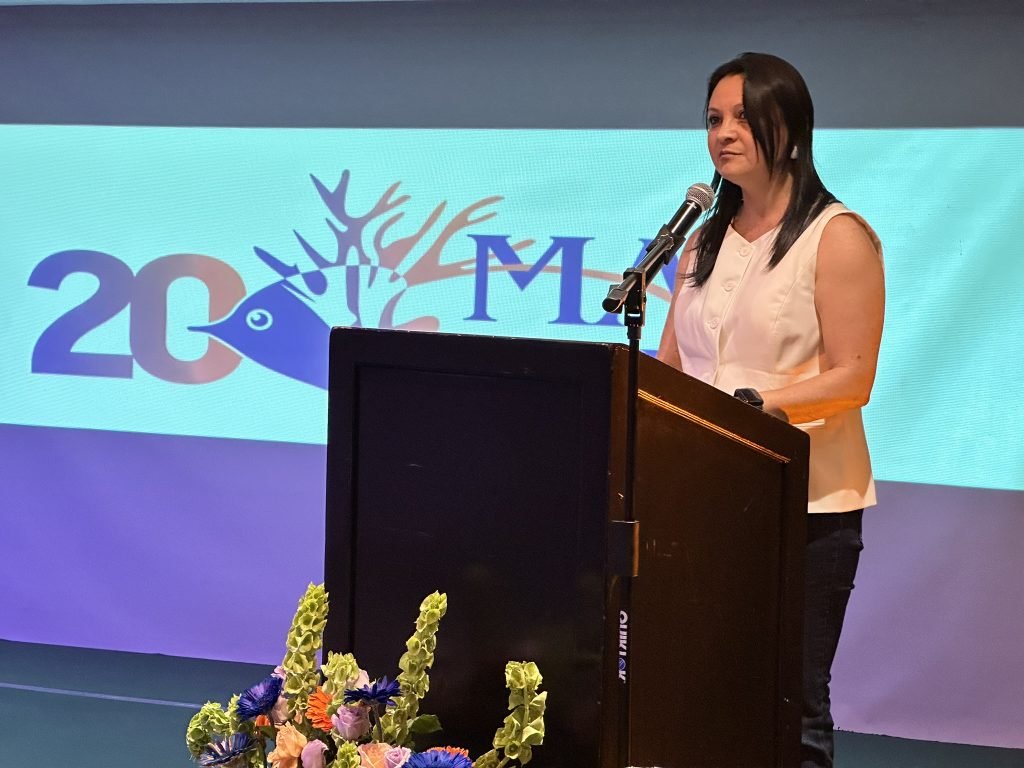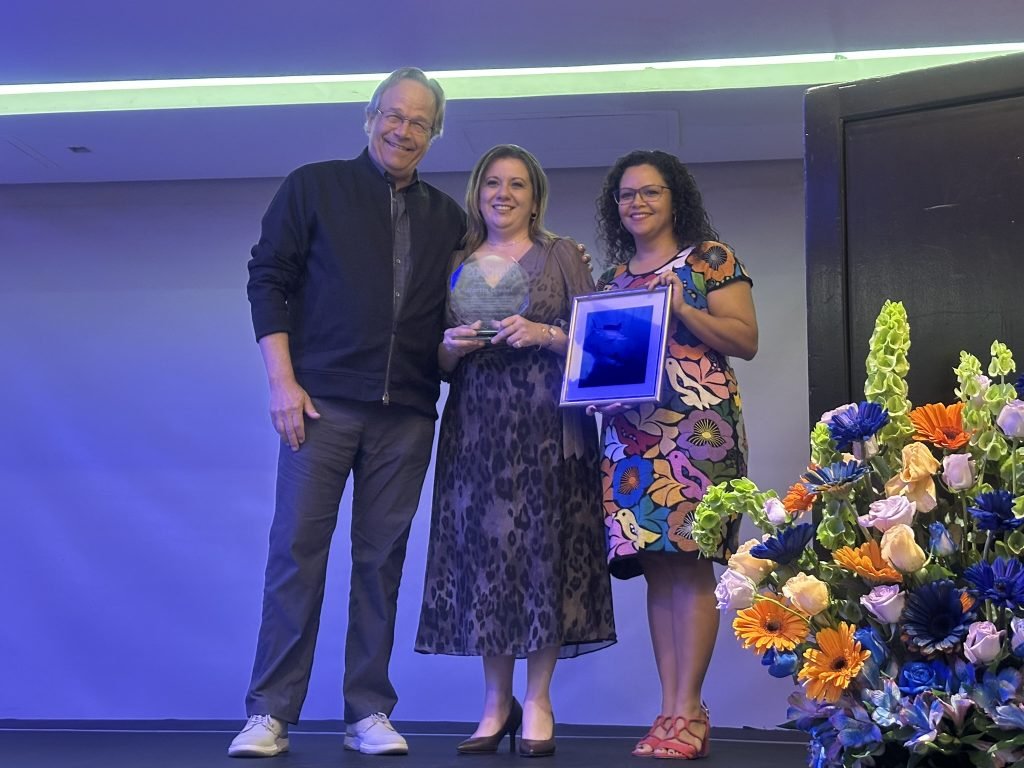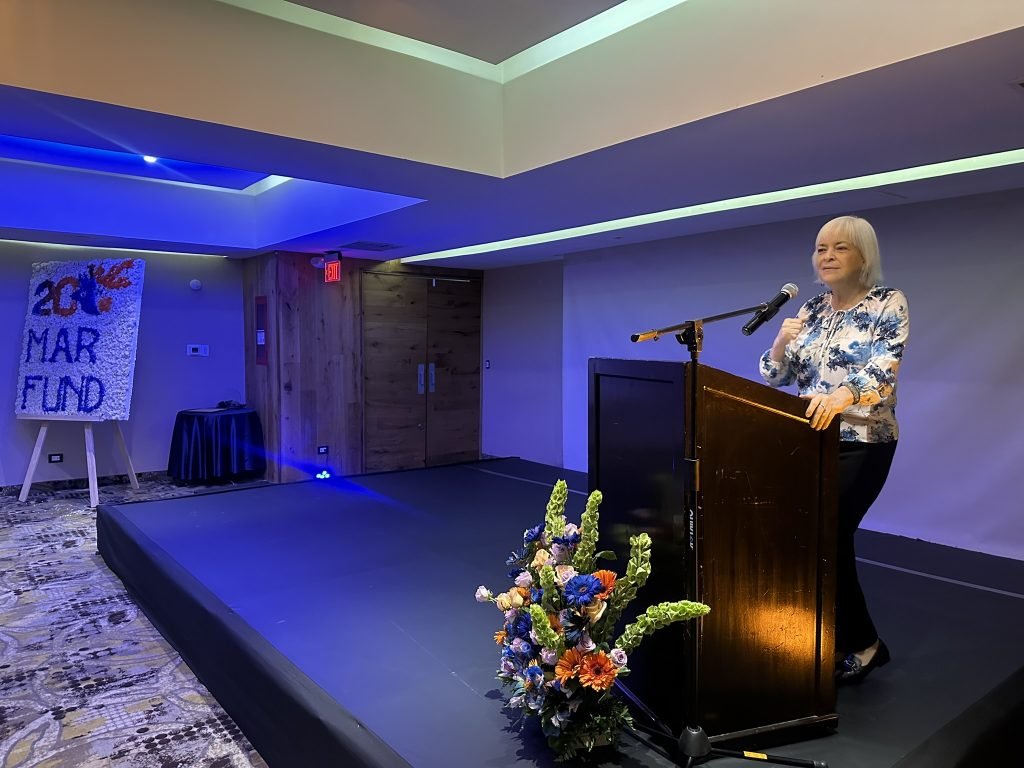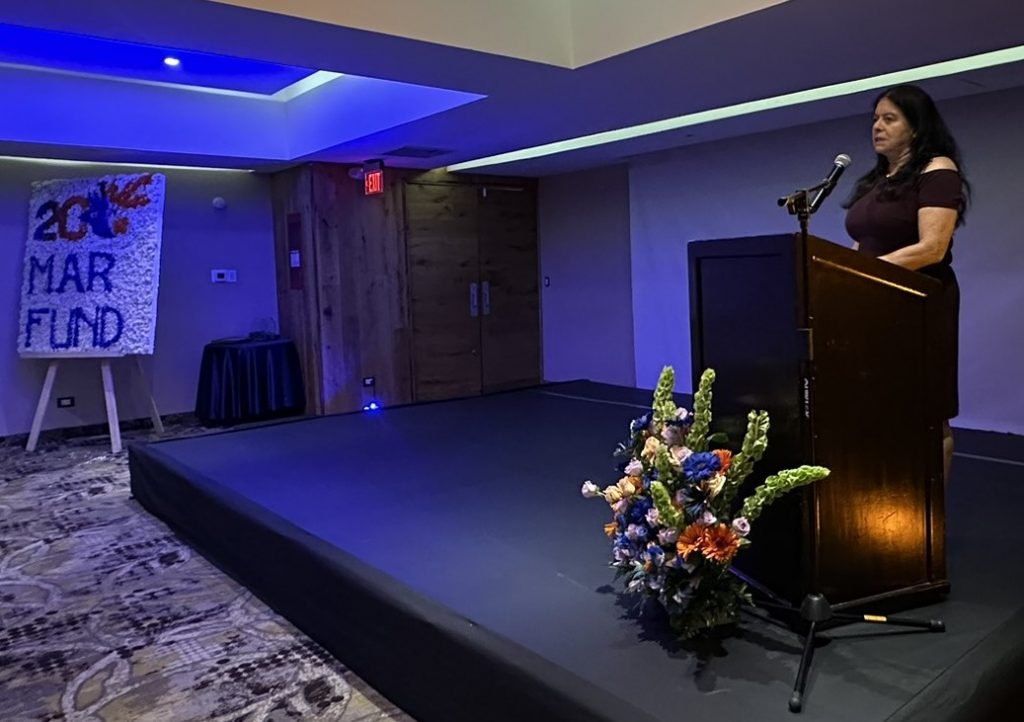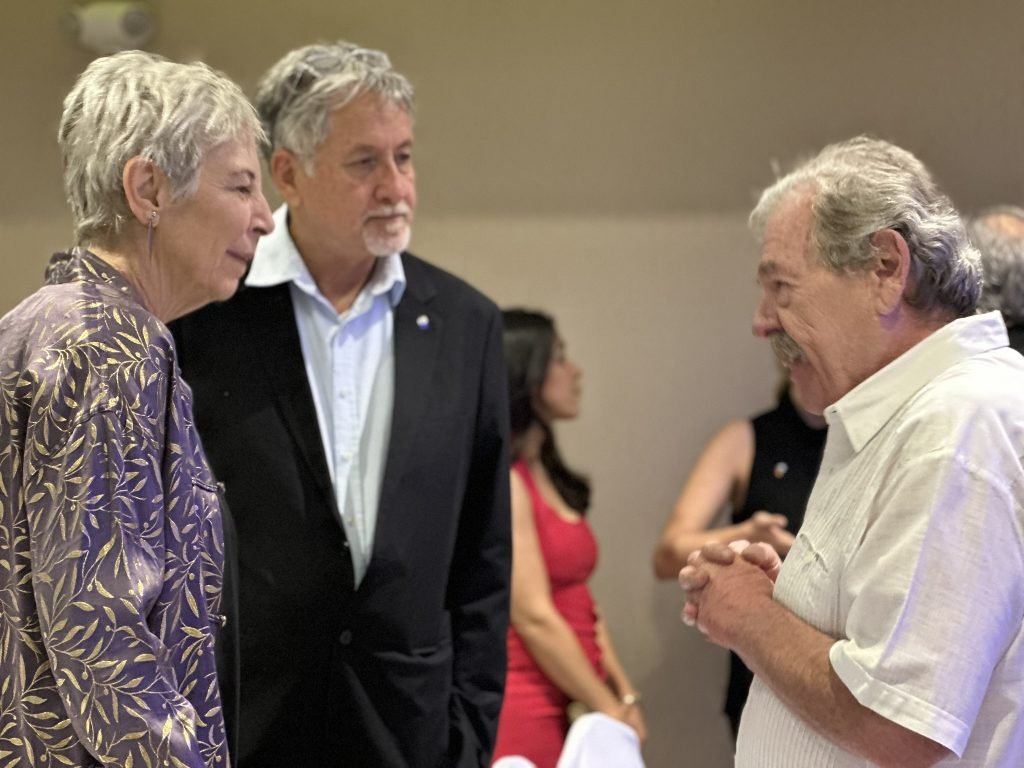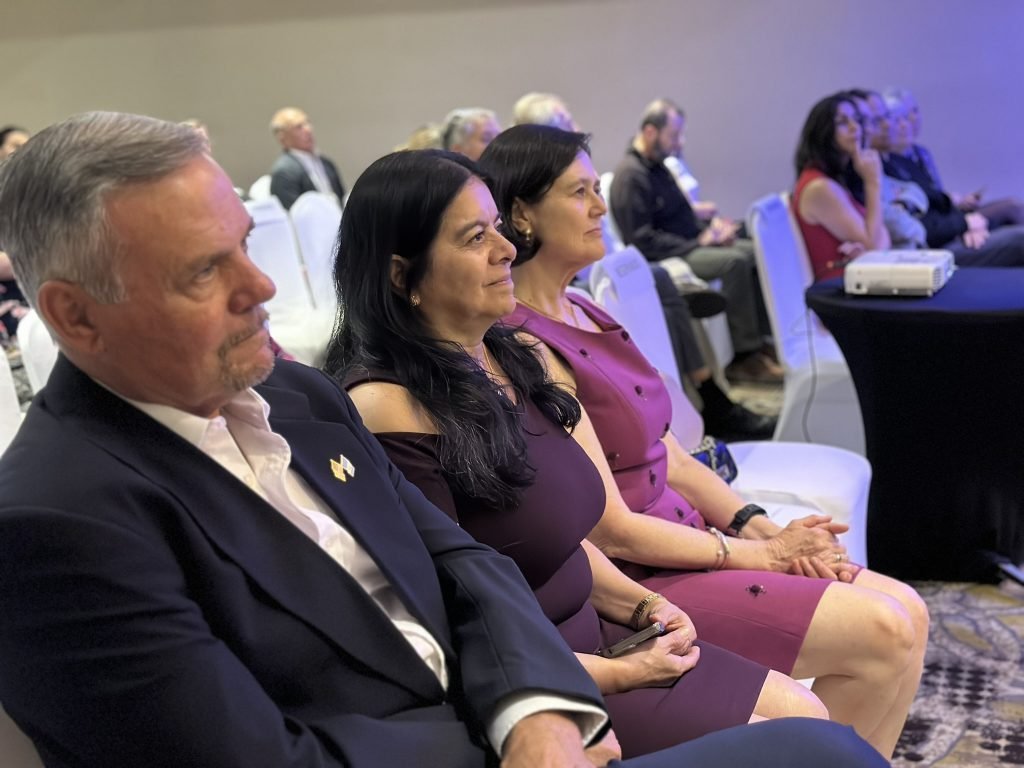Stronger Together: Reef Response Training Builds Regional Capacity in Belize
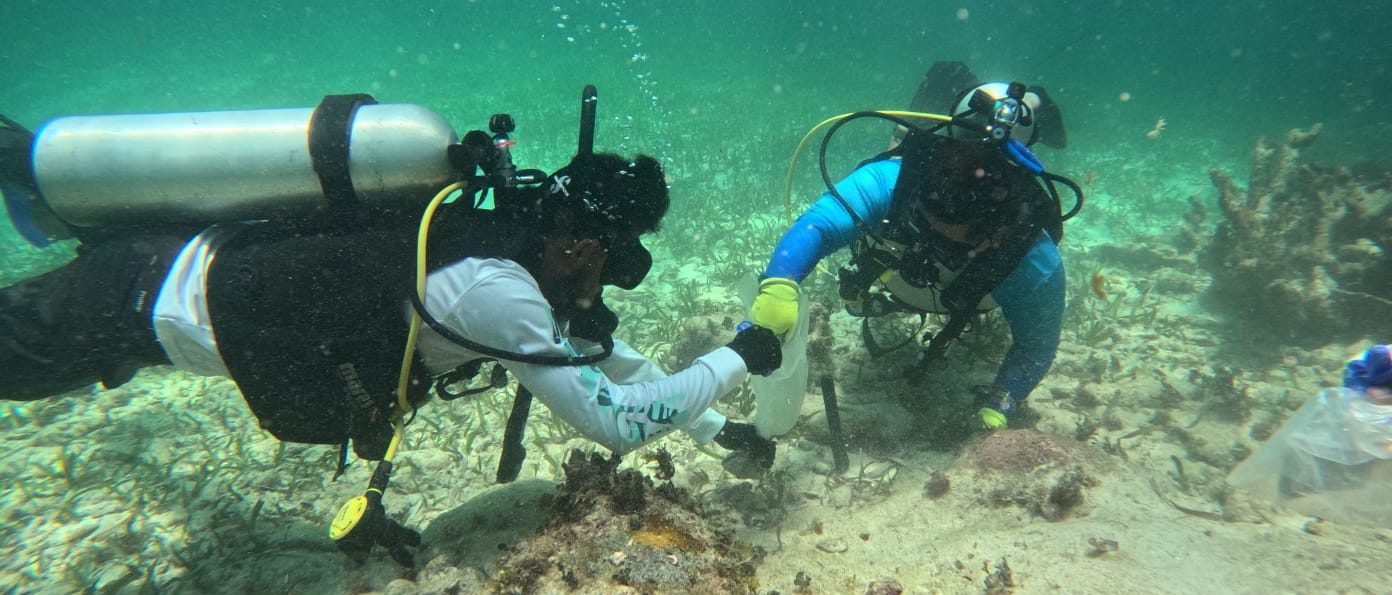
Photo: Julio Noble
From July 21st to 25th, San Pedro, Belize, hosted a training course for Post-Storm Response Brigades for Reef in Hol Chan Marine Reserve, with the goal of preparing new brigade members and strengthening local capacities to protect the reefs of Belize.
During the training, participants learned how to implement immediate actions before, during, and after a hurricane, based on the Early Warning and Rapid Response Protocol created by The Nature Conservancy in 2019. This protocol guides the necessary steps to reduce hurricane impacts on coral reefs, ecosystems essential to the health of the ocean and the wellbeing of coastal communities.
The newly trained and certified group of brigade members is made up of men and women with different backgrounds: experienced divers, community leaders from San Pedro, and representatives from local institutions and organizations.
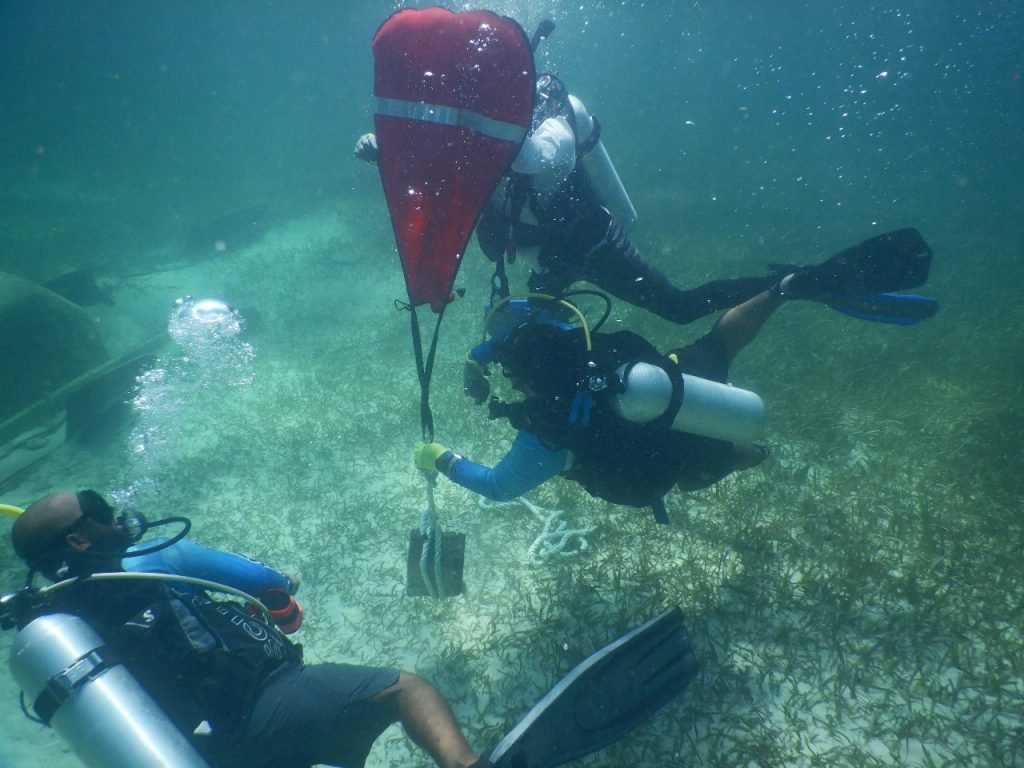 Photo: Julio Noble
Photo: Julio Noble
The sessions were led by an expert instructor from México, with support from an assistant instructor and a Belizean instructor-in-training, who was also certified through this course as a new brigade instructor.
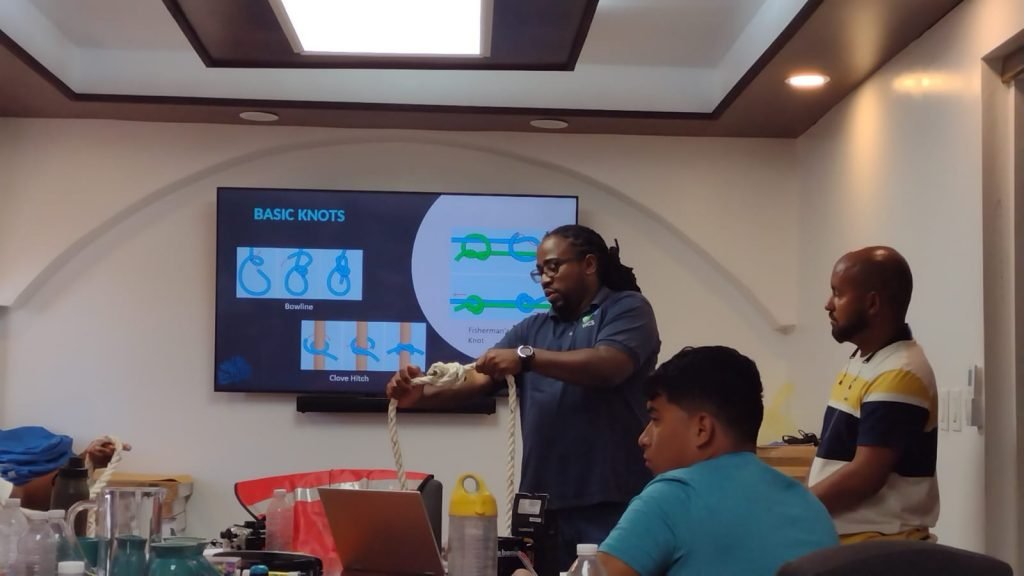 Photo: Julio Noble
Photo: Julio Noble
I want to extend a Thank you to MAR Fund for extending this training to the trainees. Really we have to be prepared for natural disasters especially in the hurricane season. This training will help in the assessment of damages and restoration of our coral reefs after a hurricane.
– Hon. Andre Perez – Minister of Blue Economy
Being a new Reef Brigade Instructor enables me to contribute even more to my passion in marine conservation. It now enables me to equip our country’s aspiring marine conservationists with the necessary skills needed to assist in coral reef restoration in Belize. I look forward to collaborating with other organizations in creating more Reef Brigades within our country.
– Henry Brown Jr. – Wildlife Conservation Society
With these new brigade members, the regional capacity for rapid and effective response to natural disasters is strengthened, protecting the reefs of the Mesoamerican Reef Region (MAR). This is possible thanks to the commitment of the region’s governments and the valuable support of partners and donors.
Hol Chan Marine Reserve is immensely grateful to MAR Fund for its invaluable partnership in the recently completed ‘Post-Storm Reef Brigades Training for Coral Reefs in San Pedro.’ Thanks to this collaboration, we now have a trained and equipped brigade ready to respond swiftly and effectively to reef damage after a storm; which is an essential step in safeguarding the future of our coral ecosystems.
– Vicky Coc – Hol Chan Marine Reserve
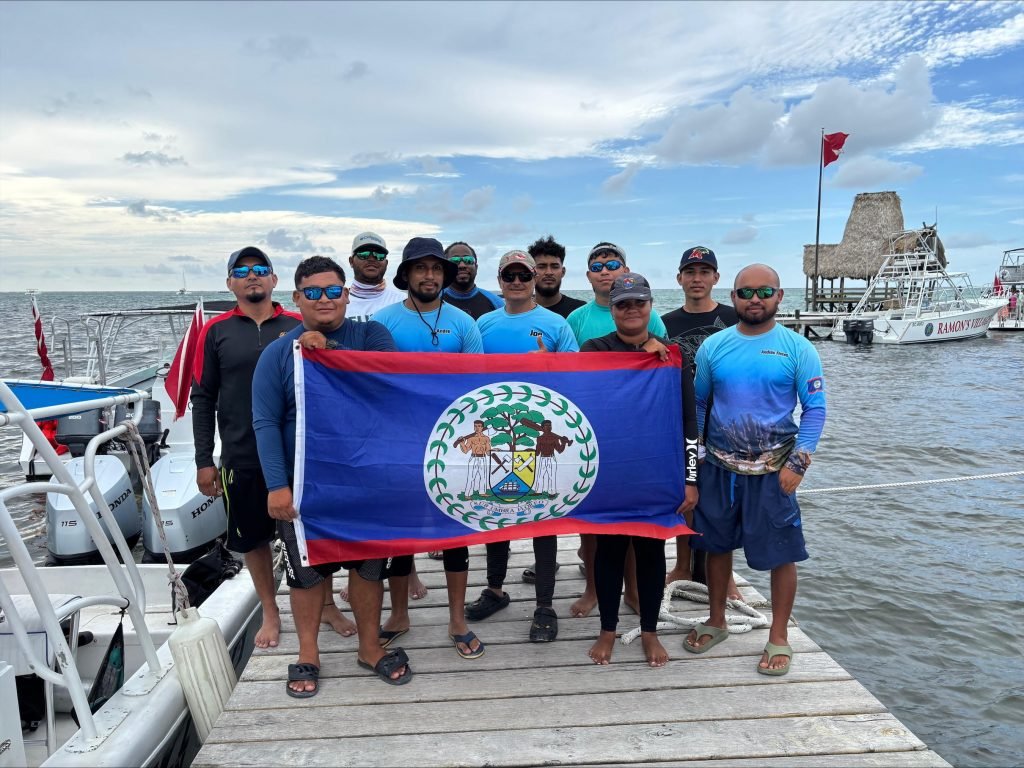 Photo: Andre Herrera
Photo: Andre Herrera
Strengthening Regional Capacities: Post-Storm Reef Response Brigade Course in Guatemala’s Caribbean
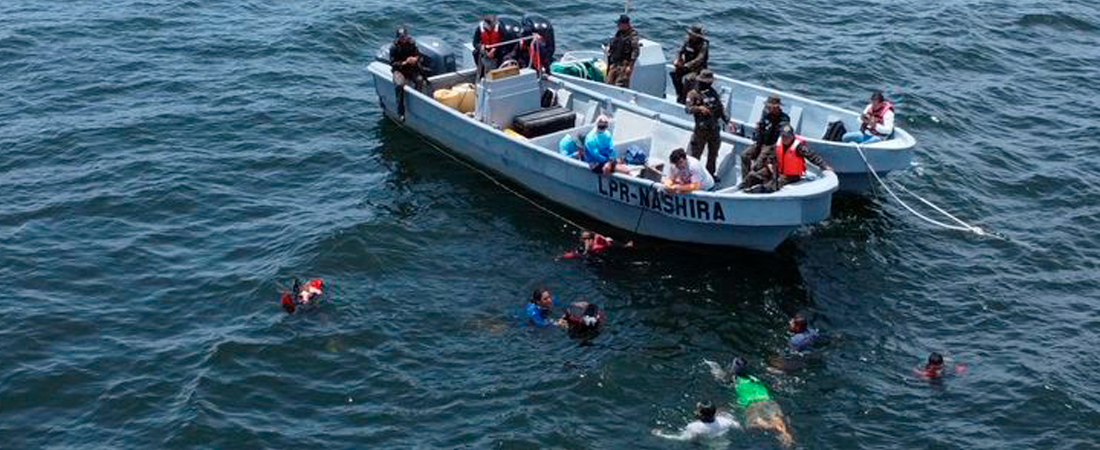
Photo: Ariel Morales
From July 7 to 11, the city of Santo Tomás de Castilla, Izabal, hosted a training course for Post-Storm Response Brigades, with the goal of preparing new brigade members and strengthening local capacities to protect the reefs of the Caribbean coast of Guatemala.
During the training, participants learned how to implement immediate actions before, during, and after a hurricane, based on the Early Warning and Rapid Response Protocol. This protocol guides the steps necessary to reduce hurricane impacts on coral reefs, ecosystems essential to the health of the ocean and coastal communities.
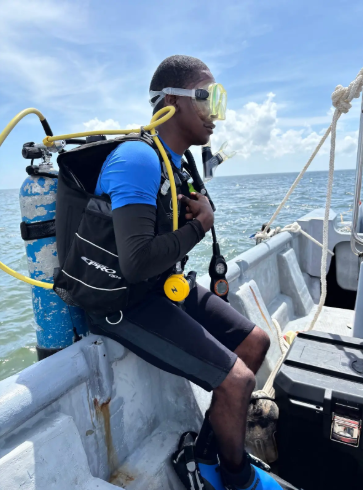
Photo: André Herrera
Seven new brigade members were trained and certified. The group included experienced divers, members of the communities of Livingston and Cabo Tres Puntas, as well as personnel from the Caribbean Naval Command (CONACAR) and members of local organizations and institutions.
“Being a brigade member for Guatemala makes me proud, to have the skills to respond and contribute to the rescue of coral reefs after a hurricane. This training shows that there are many ocean lovers making an impact, little by little.” – Sofía Fernández, Brigadist.
Seven new brigade members were trained and certified. The group included experienced divers, members of the communities of Livingston and Cabo Tres Puntas, as well as personnel from the Caribbean Naval Command (CONACAR) and members of local organizations and institutions.
This training was coordinated by the Mesoamerican Reef Fund’s (MAR Fund) Reef Rescue Initiative, with support from the Guatemalan Caribbean Post storm Response Committee, comprised of the National Council of Protected Areas (CONAP), the Foundation for Ecodevelopment and Conservation (FUNDAECO), the Municipality of Puerto Barrios, and CONACAR. The training sessions were funded by the Adaptation Fund Climate Innovation Accelerator (AFCIA) through the AF-EU-UNDP (UNDP) Innovation Small Grant Aggregator (ISGAP) small grant platform.
“Undoubtedly, the young people who graduated today are a valuable contribution to the rescue and recovery of our reefs. Thanks to the contribution of MAR Fund and the institutions that made it possible, we now have expert human resources to deal with the consequences of hurricanes and storms.” – Lic. Carlos Tenas Martínez Governor of the Department of Izabal.
The sessions were led by an expert instructor from Guatemala, along with two assistant instructors (from Honduras) and an instructor in the process of certification (from Guatemala), putting into practice the knowledge acquired during the post-storm brigade trainer course held in Puerto Morelos in August 2024.
With these new brigade members, the regional capacity for rapid and effective response to natural disasters is strengthened, protecting the reefs of the Mesoamerican Reef Region (MAR). This is possible thanks to the commitment of the region’s governments and the valuable support of partners and donors.
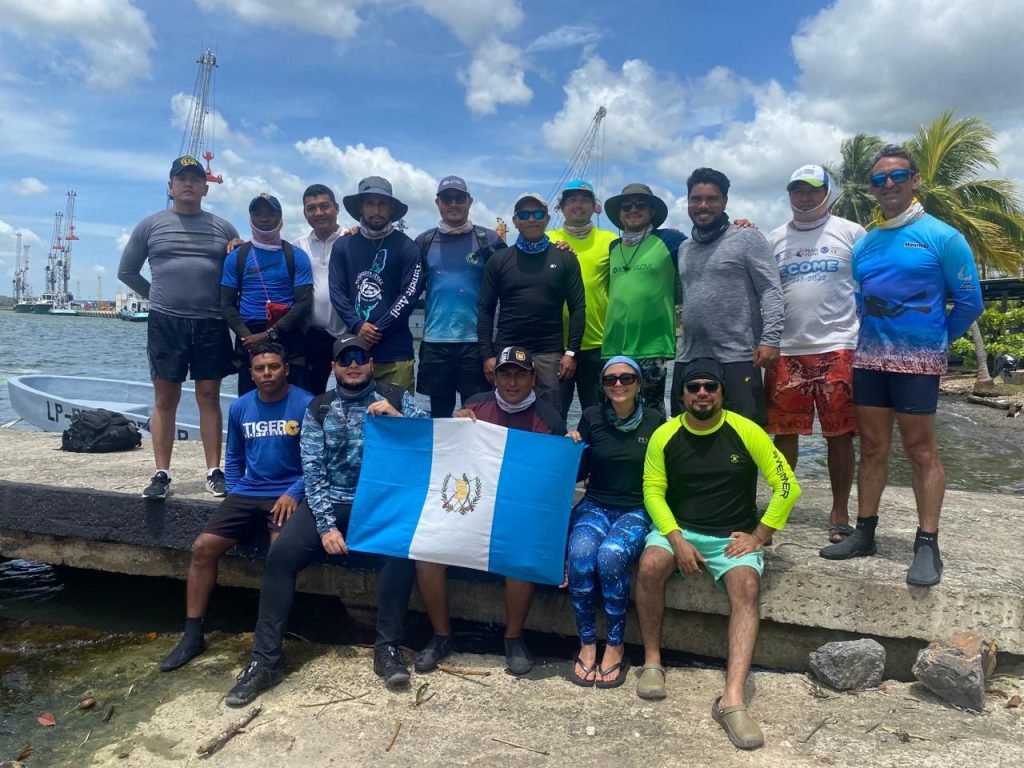 Photo: Claudia Ocaña
Photo: Claudia Ocaña
Training and coordination for effective implementation: Initial Workshop for the selected proposals of the 2nd Call of Phase III

Photo: MAR Fund
From July 1-3, the Initial Workshop was held in Guatemala City for the projects selected in the second call of the project “Protection of Maritime Resources in Central America III (Phase III)”, an initiative financed by the German Cooperation through KfW, within the framework of MAR Fund’s Saving Our Protected Areas program.
During three days, 31 technical and administrative representatives from 16 marine-coastal protected areas from Mexico, Belize, Guatemala and Honduras met to strengthen capacities, exchange experiences and align strategies for an effective and coordinated implementation of their projects. Civil society organizations that will accompany the implementation of these projects also participated.
A platform for regional action
During the workshop, Marco Cerezo, representing MAR Fund’s Board of Directors, highlighted the value of this second Phase III call for proposals as an opportunity to give continuity to the work of previous phases, innovate in protected area management and strengthen regional collaboration. He underscored MAR Fund’s role as a platform that articulates resources, partnerships and technical capacities to strengthen the conservation of the Mesoamerican Reef System (MAR).
Practical training, dialogue and exchange
The workshop combined technical sessions and spaces for exchange between teams, addressing key topics such as:
- Use of the Project Operating Manual and the online Project Management System.
- Guidelines for technical and financial reporting.
- Implementation of the Environmental and Social Action Plans and the monitoring of the Complaints and Grievance Mechanism.
- Strategies to foster collaboration between projects and generate synergies in the territory.
This space made it possible to learn about the projects that will be implemented by the administrators and co-administrators of the different marine-coastal protected areas, strengthen institutional capacities and lay the groundwork for a solid, efficient execution with a regional vision.
More projects, more impact
Ana Beatriz Rivas, coordinator of Phase III, thanked the attendees for their active participation and acknowledged the support of the German Cooperation through KfW, which made possible the financing of eight new projects in this call, in addition to the 12 already supported in the first call. She mentioned that KfW’s support not only finances projects, but also strengthens local capacities, promotes networking and improves the resilience of protected areas and coastal communities.
Looking ahead
The learnings, tools and connections generated during this workshop will be directly translated into concrete actions in the territory. Through these initiatives, MAR Fund and its partners reinforce their commitment to the conservation and sustainable use of marine-coastal ecosystems in the MAR, contributing to the environmental resilience and well-being of the communities that depend on these valuable resources.
Photos: Liz Herrera y Olga Centeno
The Mesoamerican Reef at the Forefront of the Global Dialogue for the Oceans
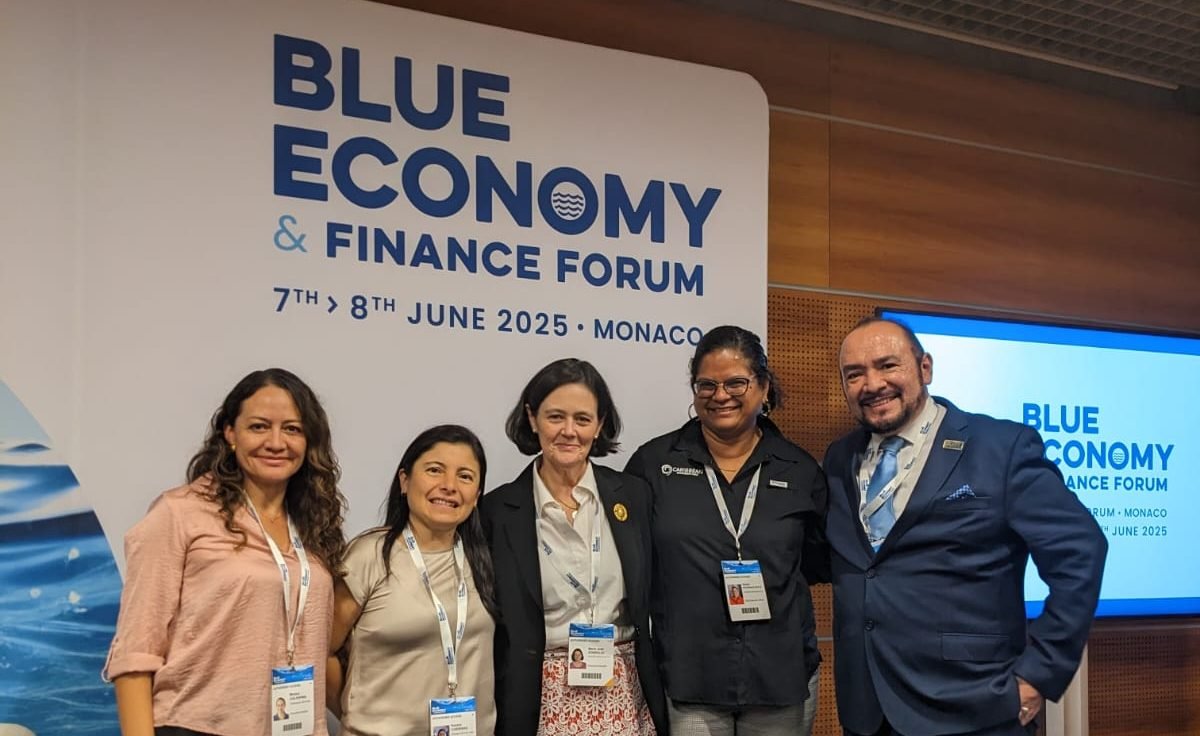
The Mesoamerican Reef Fund (MAR Fund) participated in two key ocean conservation discussion forums, bringing the voice of the Mesoamerican Reef ecoregion as a critical, culturally and biologically diverse region: the Blue Economy Finance Forum (BEFF) in Monaco, and the Third United Nations Conference on the Oceans (UNOC3) in Nice, France.
As part of the BEFF, MAR Fund participated in a side event organized by The MedFund, in collaboration with the Fondation Prince Albert II of Monaco, the Consortium of African Environmental Funds (CAFÉ) and the Network of Environmental Funds of Latin America and the Caribbean (RedLAC), environmental funds from Africa, the Caribbean and South America, the Conservation Finance Alliance and the Global Environment Facility.
This space highlighted how environmental funds support ocean conservation and can accelerate compliance with the 30×30 target of the Kunming-Montreal Global Biodiversity Framework, which seeks to protect at least 30% of terrestrial, inland water, coastal and marine areas by 2030.
María José González, Executive Director of MAR Fund, presented the work carried out in the region over the Fund’s 20 years. She presented the different operational programs, which include coastal and marine protected areas and climate change, and highlighted innovative projects such as the parametric insurance for coral reefs to cover emergency response after hurricanes and the cross-cutting blue and regenerative economy initiative, MAR+Invest, supported by the Global Fund for Coral Reefs.
UNOC3 brought together governments, international agencies, non-profit organizations, private sector and civil society to accelerate actions and partnerships that contribute to Sustainable Development Goal 14: conserve and sustainably use the oceans, seas and marine resources. The agenda addressed key challenges such as marine pollution, unsustainable fishing, loss of coastal habitats and the effects of climate change.
MAR Fund participated in a series of spaces for dialogue and collaboration for sustainable ocean management, including:
- Innovate to conserve: Connecting knowledge, territories and strategies to preserve coral reefs in Latin America.
-
- Women and ocean sustainability, a call for ocean governance with gender equality; where the Women for the MAR project was also presented.
- The State of the coral reefs in the Wider Caribbean Sea: A colossal monitoring effort, co-organized by our partner Healthy Reefs for Healthy People.
- Enhancing Coastal Resilience for a Thriving Blue Economy, in which MAR Fund presented the initiative to finance small-scale fishers, as part of MAR+Invest.
“Participation in these global events allows us to learn from successful efforts in other regions and share experiences of the Mesoamerican Reef System (MAR). Being a convening agent for the Global Fund for Coral Reefs has allowed us, along with our partners at MAR+Invest, to initiate the development of a mixed finance ecosystem in the region and learn with other fund beneficiaries to promote blue ventures with a positive impact on coral reefs, and MAR Fund’s participation in these events reinforces our commitment to innovative and collaborative financing solutions for a healthy and resilient future for the MAR,” concluded González.
About MAR+Invest
MAR+Invest is a partnership between Fondo Mexicano para la Conservación de la Naturaleza (FMCN), Sureste Sostenible, Healthy Reefs for Healthy People, New Ventures, Viwala and MAR Fund. Its goal is to mobilize capital for ventures with positive impact on coral reefs and coastal communities. To learn more, visit: www.mar-invest.org
Credits: RedLAC and María Arteaga
20 Years Building a Legacy
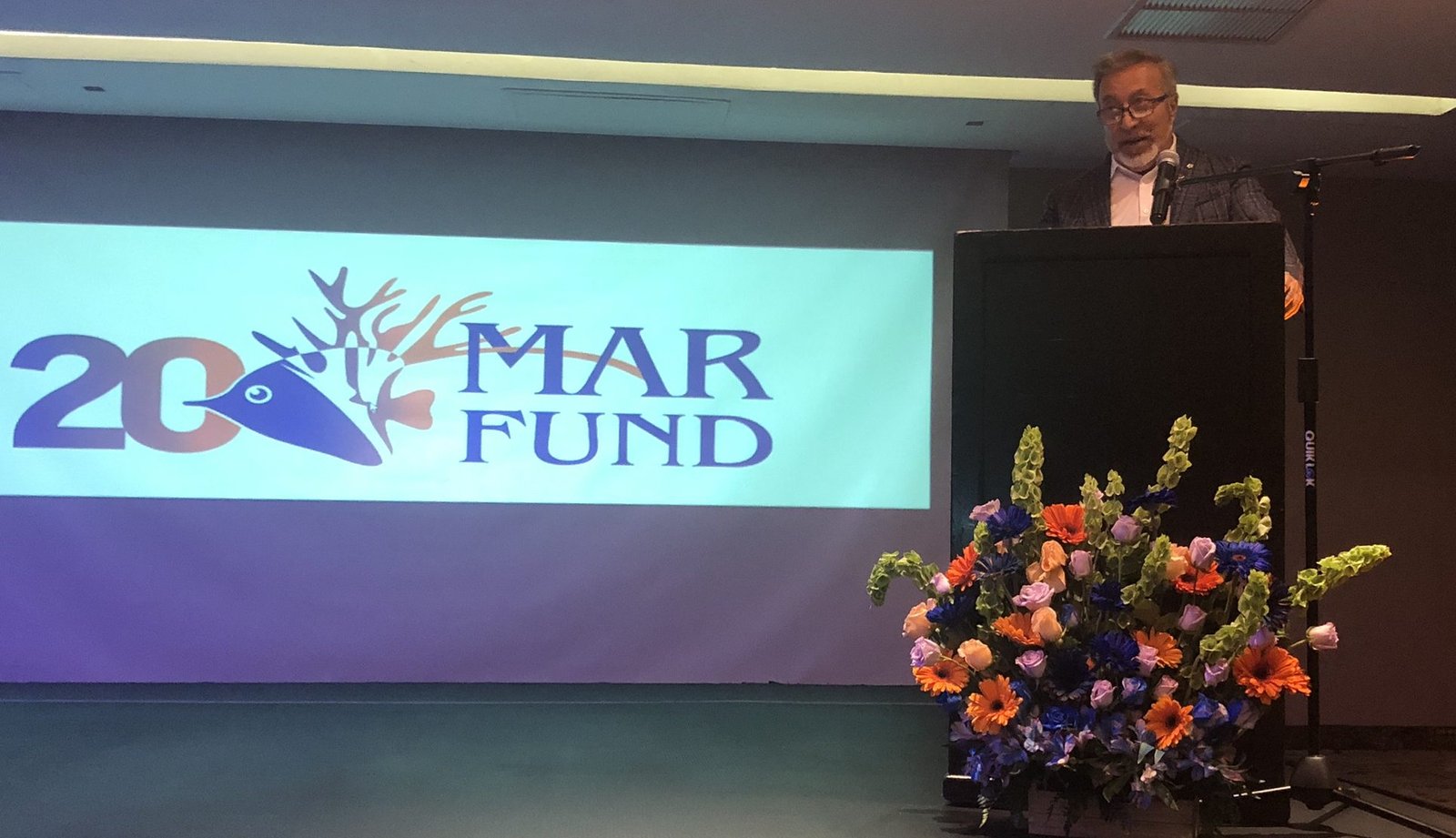
Foto: Roxana Chávez
To commemorate 20 years of MAR Fund is to recognize the efforts of hundreds of people, organizations and communities that have dedicated their work to the conservation of the Mesoamerican Reef (MAR). From its inception, MAR Fund had a clear purpose: to build a regional platform that would bring together actors from four countries to develop joint strategies for the protection of the reef. It was not an easy task. At a time when funds and actions were mainly national, MAR Fund proposed something different: a common strategy for a shared ecosystem among four countries.
Guatemala City was the starting point for the commemorative activities of this anniversary, with an event that brought together environmental and diplomatic authorities, international organizations, strategic partners and key players in the conservation sector. It was a celebration and an opportunity to reflect on the legacy of the organization and project its future in the protection of the Mesoamerican Reef.
The day began with remarks by Carlos Rodríguez, strategic advisor, who highlighted the evolution of MAR Fund as a regional conservation platform. Then, María José González, executive director, delved into the organization’s legacy, highlighting the transformation that has allowed it to consolidate alliances and mobilize direct funding to actors in the field.
MAR Fund has built a valuable legacy, but even more important is the fact that the organization has been able to build a strong and sustainable conservation platform in the region.
The event was also an opportunity to recognize those who have left their mark on MAR conservation. Sylvia Marín von Koller and Martin Goebel were honored for their contribution to strengthening conservation in the region, while a video commemorating the twentieth anniversary was shown to review the milestones achieved by the organization.
The closing remarks were made by Yvonne Ramirez, President of the Board of Directors, who reaffirmed MAR Fund’s commitment to sustainability, inclusion and innovation in conservation.
MAR Fund’s anniversary marks a turning point: the coming years demand greater ambition, collaboration and innovative strategies to protect one of the region’s most valuable ecosystems. We celebrate what we have built in these first 20 years and renew our commitment to those to come.
Photos: Roxana Chávez and Liz Herrera
Dive the wave of change! MAR+Invest Acceleration Programme 2025

Photo: MAR+Invest
Mesoamerican Reef Fund (MAR Fund), together with the Mexican Fund for the Conservation of Nature (FMCN)/Sureste Sostenible, Healthy Reefs for Healthy People (HRHP) and New Ventures/VIWALA announce their third call for proposals for the MAR+Invest Acceleration Programme. Applications are welcome from both businesses and NGOs with business arms to fund their efforts. Both profiles can be in early, growth, or consolidation stages, as long as they demonstrate a positive impact on the Mesoamerican Reef System (MAR) and its dependent communities.
MAR+Invest is a blended finance initiative focused on ocean conservation, based on an alliance among regional organizations. It seeks to strengthen the ecosystem of conservation impact investing in the MAR region, which covers Mexico, Belize, Guatemala, and Honduras.
About the MAR+Invest 2025 Acceleration Programme
The MAR+Invest 2025 Acceleration Programme provides seven months of technical assistance to companies offering solutions aimed at the protection, conservation, and restoration of the MAR and its dependent communities. We are looking for business solutions that help reduce the main threats facing the reef and surrounding ecosystems:
- Water pollution
- Overfishing
- Climate change
Focus sectors:
- Wastewater treatment and ecotechnologies
- Sustainable fishing and traceability technologies
- Regenerative coastal agriculture, mariculture, and sustainable coastal aquaculture
- Sustainable tourism
- Restoration of reefs, mangroves, and seagrasses
- Waste management
- Marine biodiversity conservation projects (e.g., no-fishing zones)
- Local renewable energy
- Emission reduction technologies
- Blue carbon (depending on local regulations)
- Among others
Call for proposals: May 20 – June 29, 2025
Eligible Priority Sites
Eligible projects must generate (or have a plan to generate) measurable social and environmental impact for one or more of the 18 priority sites (see Annex II) within the four MAR countries or their areas of influence. The marine-coastal protected areas considered include the following:
México (Quintana Roo)
|
Belice
|
Guatemala
|
Honduras
|
You have from May 20 to June 29, 2025 to apply!
All details are available at https://mar-invest.org/call-for-proposals-2025/. For any questions, contact ricardo@nvgroup.org
Celebrating 20 Years of Mesoamerican Reef Conservation
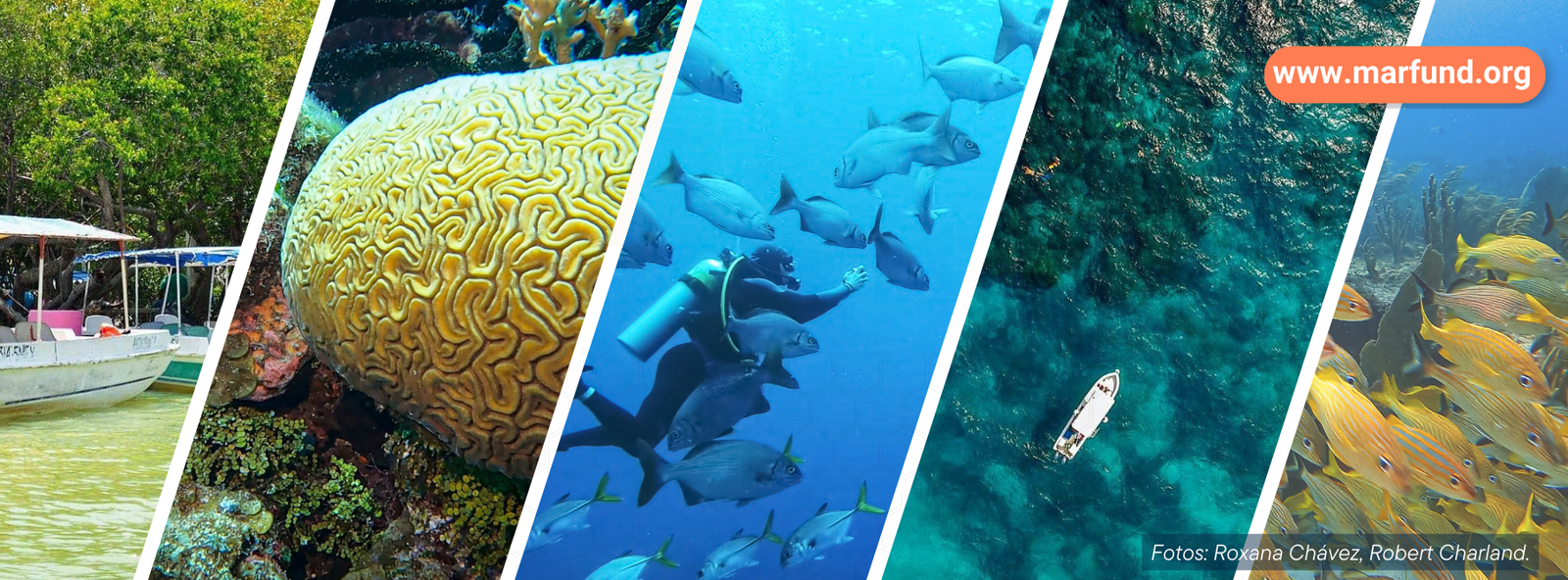
In 2025, we at the Mesoamerican Reef Fund (MAR Fund) commemorate two decades of continuous work and commitment to the protection and sustainable management of the Mesoamerican Reef System (MAR). Since our operations began in 2005, we have led collaborative efforts with governments, local communities, fishers, scientists, non-governmental organizations, and international donors to safeguard this invaluable marine and coastal system.
The MAR is the largest transboundary reef in the Western Hemisphere, stretching over 1,000 km along the Caribbean coasts of Mexico, Belize, Guatemala, and Honduras. This region is home to numerous coastal and marine protected areas, covering more than nine million hectares of protected surface in total.
20 Years of Impact
Over the past two decades, our commitment—alongside that of our partners— has led to significant achievements in conserving the MAR and enhancing the well-being of the communities that depend on these ecosystems. Some of our key accomplishments include:
- Local capacity building: More than 200 communities have been trained to implement sustainable practices in fishing, tourism, and environmental management.
- Strengthening protected areas: Support for 28 coastal and marine protected areas across the region.
- Innovative financial management: Mobilization of over $45 million to fund regional conservation projects and the management of an endowment fund to ensure long-term sustainability.
- Biodiversity conservation: Support for initiatives focused on the recovery of iconic species such as parrotfish and elkhorn coral, as well as the protection of fish spawning aggregations.
- Ecosystem resilience: Restoration of mangroves and coral reefs, along with emergency response training for post-storm recovery.
- Advancing the blue economy: Development of a blended finance system to support enterprises with a positive impact on the reef.
A Renewed Commitment to the Future
MAR Fund’s 20th anniversary is an opportunity to strengthen our commitment to protecting the Mesoamerican Reef and the communities that depend on it. In the face of global threats such as climate change and pollution, we reaffirm our purpose to lead science-based actions, promote innovation, and collaborate with regional partners to ensure the long-term preservation of the MAR and the vital ecosystem services it provides for future generations.
“These achievements are the result of a collective effort. Regional collaboration has proven essential in turning threats into opportunities and in building a future where the MAR continues to be a source of life and well-being,” says María José González, Executive Director of MAR Fund.
We invite everyone to be part of this anniversary celebration and to support efforts to protect one of the world’s most valuable ecosystems. Throughout the year, we will share impact stories, key learnings, and visions for a more sustainable future for the MAR. Local communities, partners, donors, and media will have opportunities to participate in various commemorative activities across social media and in the four countries that are part of the Mesoamerican Reef System.

About MAR Fund:
MAR Fund is an environmental fund that operates as an innovative financial mechanism for the conservation of the Mesoamerican Reef System. Its mission is to seek, secure and facilitate regional funding, foster partnerships, and drive capacity building for the conservation, restoration, and sustainable use of marine and coastal ecosystems in the Mesoamerican Reef.
MAR Fund carries out its actions in direct collaboration with local partners in each country, including non-profit organizations, communities, productive sectors, and national authorities.
MAR Fund runs the following key programs for conserving the Mesoamerican Reef System: Saving our Protected Areas, Fishing for the Future, Climate Change, Clean Water for the Reef, the Belize Marine Fund, and Blue and Regenerative Economy.
For more information, visit www.marfund.org or follow us on social media.
Deepwater Snappers and Groupers of Mesoamerica
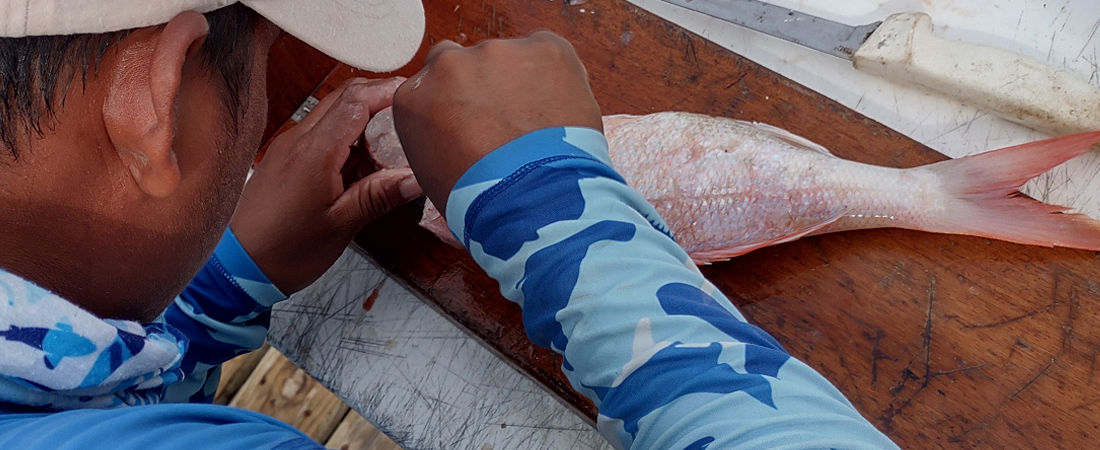
Fishing Sampling
Photo: Mar Alliance
by: Ivy E. Baremore, PhD
MarAlliance
The deep waters of the western Caribbean are home to long-lived snappers and groupers, commercially important, yet understudied species. This project provided some of the first information on the reproductive periodicity, life history, connectivity, and distribution of the deepwater snapper/grouper complex in the western Caribbean. Working with ten fishers in Belize and Honduras, MarAlliance deployed 159 vertical longlines (24 in Belize and 75 in Honduras) and 14 deepwater cameras outfitted with hydrophones (three in Belize and 11 in Honduras) to investigate the life history and ecology of 148 of these species. The research was conducted in three protected areas: Southwater Caye and Glover’s Reef Atoll in Belize, and the Bay Islands National Marine Park in Honduras.
Analysis of age, growth, and reproduction revealed that deepwater snappers and groupers are long-lived, with the longevity of the cardinal snapper (Pristipomoides macrophthalmus) validated to 60+ years using bomb radiocarbon dating (Baremore et al. In review). Other species were found to have similarly long lives, with blackfin snapper (Lutjanus buccanella) aged to 36 years and silk snapper (L. vivanus) to more than 40 years. Additionally, misty (Hyporthodus mystacinus) and yellowedge groupers (H. flavolimbatus) previously collected, also through the support of another MAR Fund grant, were found to be more than 80 years old. Reproductive analysis revealed that most deepwater snapper and grouper species spawned during the fall months (August-December), but no evidence of spawning aggregations was observed. Hydrophones deployed with camera installations did not reveal immediate evidence of spawning, sound file analysis is ongoing.
Preliminary genetic analysis of cardinal and silk snappers found no evidence of barriers to gene flow for silk snappers. However, cardinal snappers at Lighthouse Reef Atoll were found to be genetically removed from those in southern Belize. This suggests that the cardinal snappers at the most remote sites may need separate management strategies. Silk snappers can likely be managed as one stock in the region.
Project findings were included in a recent publication, which revealed that snappers in Honduras, where the fishery is larger and older, were smaller and less abundant than those in Belize, where the fishery is smaller and younger (Baremore et al., 2023). These data and others have been used to develop an Ecological Risk Assessment for the fishery, which indicated that all of the deepwater grouper and snapper species are highly vulnerable to overfishing (Baremore, 2024).
Based on the project’s findings, it is recommended that measures such as limited access and closed seasons are needed for deepwater groupers and snappers. Although resources are limited across the MAR region for enforcement of new management plans specifically for deepwater species, managers could take advantage of existing protected areas and legislation by extending ‘no take’ zones to the 500 meter depth contour. Seasonal fishery closures or at existing MPAs should be considered during the fall months (August-October) to allow for reproduction. This is especially true for the long-lived grouper species, which tend to be more spatially restrained and highly vulnerable to extirpation (Sadovy De Mitcheson et al., 2020).
This project was supported by the Traditional Window of the 14th Request for Proposals of MAR Fund’s Small Grants Program.
Video: MarAlliance
Empowering Fishers for Sustainable Livelihoods in Cayman Crown
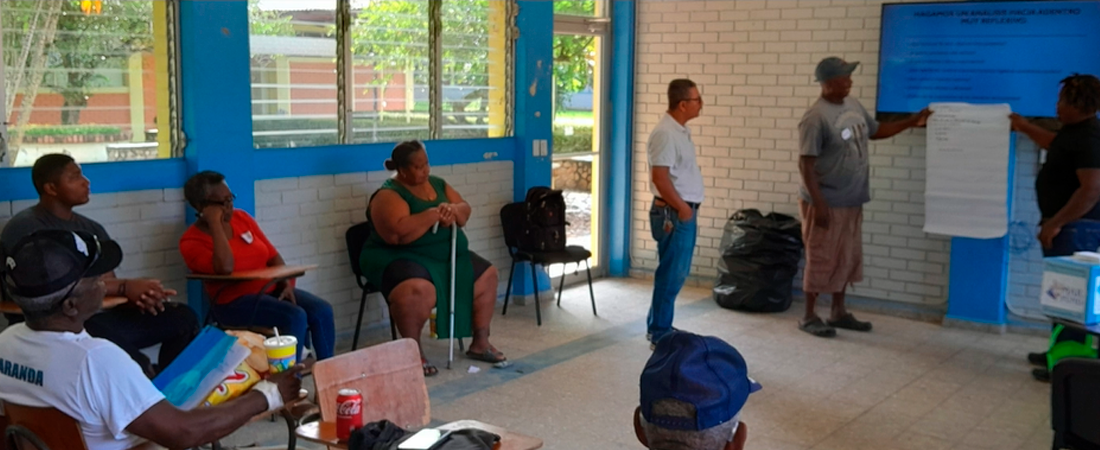
by: Coral Reef Alliance team (Julio San Martín, Antonella Rivera, Tanya Amaya and Allie Coleman)
Through an innovative collaboration, the project led by the Coral Reef Alliance (CORAL), engaged local fishers’ associations and key stakeholders, including NGOs such as the Foundation for the Protection of Lancetilla, Punta Sal, and Texiguat (PROLANSATE), Omoa Conservation Corps (CCO), and government agencies such as the General Directorate of Fisheries and Aquaculture (DIGEPESCA), the National Institute of Forest Conservation and Development, Protected Areas, and Wildlife (ICF), the Municipal Environmental Unit of Puerto Cortés, and the Municipal Environmental Unit of Omoa. Implemented in the Honduran communities of Puerto Cortés and Omoa, where dependence on the Cayman Crown reef is highest, the project focused on capacity building and livelihood diversification for fishers. A total of 71 fishers directly benefited, gaining the skills and resources to explore and implement livelihood diversification projects.
During the first stage of the project, a review was conducted of the legal and situational status of 11 fishers’ associations, three of which belong to Garifuna communities. This analysis served as the basis for establishing livelihood diversification projects in the area.
The project played a pivotal role in strengthening the administrative systems of fishers’ associations, providing legal guidance and delivering training for sustainable ecotourism ventures. Over the course of the project, 15 workshops were conducted:
- Six workshops utilizing CORAL’s adapted “Train the Trainers” model to promote sustainable practices,
- Six capacity-building workshops to enhance leadership and business management skills, and
- Three workshops on first aid at sea to ensure fishers’ associations were equipped with essential safety knowledge for their livelihood diversification activities.
In addition to these workshops, seven meetings were held with the three associations selected to implement the project to socialize the initiative, establish the commitment of each association, and gather information to legalize two of the fishing associations. These meetings were conducted with the support and guidance of the CCO and the DIGEPESCA regional office of Cortés.
From September 2023 to September 2024, the project’s timeline was marked by training sessions and stakeholder engagement workshops, culminating in the provision of equipment and resources to the three selected fishers’ associations. Additionally, two associations successfully submitted their legalization paperwork, further enabling them to pursue long-term sustainability. In the final stage of the initiative, the three associations received equipment to implement sustainable tourism, as well as office equipment to strengthen project administration. Posters on Sustainable Tourism, Sustainable Fishing, and information on the Marine Coastal Protected Areas in the region were also designed and delivered; these posters were translated into the Garifuna language.
This initiative aimed to offer livelihood diversification options for fishing communities, reducing overfishing pressure on the reef while promoting economic resilience through sustainable ecotourism. The grant was instrumental in providing legal support, training fishers in sustainable business practices, and equipping them with the tools necessary to explore tourism as a viable and sustainable income source.
Through this project, we have laid a strong foundation for the long-term conservation of the Cayman Crown reef while empowering local communities with the knowledge, tools, and opportunities they need to thrive economically in a sustainable manner.
This project was implemented under the MAR Fish initiative, and supported by The Summit Foundation (TSF) and French Facility for Global Environment (FFEM).
- A meeting was held to discuss the implementation of the income diversification project with representatives from the Caja Rural de Ahorro y Crédito Pescadores Artesanales El Porvenir (CRACPAEP) fishing association in Puerto Cortés.
- The Faro Multi-Service Company fishers’ association in Puerto Cortés received equipment for sustainable tourism.
- In Tela, two workshops were conducted: one focused on sustainable tourism, and the other aimed at enhancing leadership and business management skills.
- Equipment for sustainable tourism was delivered to the CRACPAEP fishers’ association in Puerto Cortés, along with workshops on leadership, business management, first aid, and sustainable practices.
Photos: Julio San Martin/Coral Reef Alliance.
To defend the ocean’s biodiversity is to defend human well-being
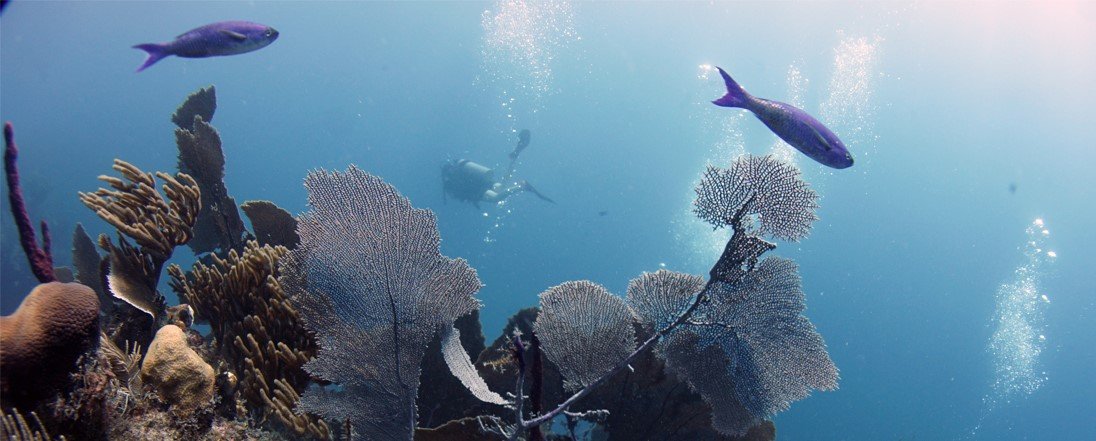
Photo: Kate Sutter
MAR Fund joins the leadership of the Inter-American Association for Environmental Defense (AIDA) and other organizations by signing the civil society organizations’ declaration titled: DEFENDING OCEAN BIODIVERSITY IS DEFENDING HUMAN WELL-BEING. This declaration calls for concrete and effective actions from the Parties to the Convention on Biological Diversity to protect our oceans and promote sustainable and equitable use of marine biodiversity. We share the declaration, published on AIDA’s website
Statement by civil society organizations at COP16 of the Convention on Biological Diversity (CBD)
The ocean is one of the world’s main reserves of biodiversity, as well as a source of food, renewable energy and our main ally in combating the global climate crisis. Human populations, in addition to having their livelihoods in the ocean, maintain cultural connections around the ocean that define their past, present and future. However, this immense source of life continues to suffer increasingly significant damage and impacts, while efforts to protect and restore it are not increasing at the same rate.
The intrinsic connection between ocean and climate itself embraces the balance of the planet. On the one hand, the ocean regulates weather patterns and, on the other, its characteristics are seriously altered by the climate crisis. The main indicators of these changes are the increase in temperature and sea level, acidification, deoxygenation, modifications in ocean currents, and a greater intensity of hurricanes and meteorological events. This affects marine biodiversity, causing the loss of particularly vulnerable species and habitat fragmentation. Coral bleaching associated with changes in climate, for example, alters the dynamics of many other species that depend on them, generating consequences for tourism, fisheries, climate resilience and biodiversity, as well as socioeconomic and cultural impacts.
Overfishing puts commercial target species and coastal-marine ecosystems in general at risk. Some of the fishing practices of greatest concern are the extraction of vulnerable or endangered species; the non-compliance with or non-existence of closed fishing areas, the demarcation of fishing zones, permitted sizes and volumes; as well as the abandonment of fishing gear, which contributes to the problem of marine debris and causes the death of many animals that are trapped in them. Intensive aquaculture, such as salmon farming, directly destroys the marine ecosystem through contamination due to the constant incorporation of nutrients and the high use of antibiotics, producing anoxia and harmful algae blooms.
Marine pollution from land-based sources continues to be a major stress factor for the marine environment and poses particularly serious problems in developing countries, where integrated waste management is extremely deficient. This has resulted in the introduction of polluting substances and materials into the ocean (untreated sewage, solid waste, including plastics, and agricultural runoff), causing changes in the quality conditions of the water column and sediments, often fatal to marine biodiversity and affecting human health.
Likewise, maritime sources of pollutants require particular attention, as the ocean is the main means of transporting goods globally. Maritime traffic involves the transport of substances harmful to the marine environment – such as hydrocarbons, toxic chemicals, sewage, ballast water, garbage, and other hazardous substances – that are discharged into the sea in routine operational tasks and in maritime incidents. Hydrocarbons pose a particularly complex problem because they are not only transported as cargo but are also used to propel ships, thus representing a latent risk scenario with impacts on air quality due to atmospheric emissions of carbon dioxide, nitrogen oxides, sulfur oxides and methane, mainly in ships that use liquefied natural gas (LNG) for propulsion. In addition, the negative impact on marine fauna of collisions with ships and underwater noise from various sources cannot be ruled out; these factors still lack sufficient and effective public policies and regulations.
Additionally, oil spills in the marine environment cause suffocation and intoxication of marine species, bioaccumulation of harmful substances, and even the functional destruction of important habitats. These impacts in turn affect relevant social and economic activities – such as shipping, fishing, tourism, and port activities – as well as endangering the health and the right to a healthy environment of coastal communities. Spills from offshore oil and gas exploration and exploitation are not adequately controlled and regulated by governments, being authorized activities in the vicinity of vulnerable areas such as coral reefs. These operations face serious limitations to prevent and provide timely response to spills with mitigation, restoration, and compensation actions for the damage caused. Environmental impacts from related activities, such as seismic exploration, dismantling of underwater infrastructures and platforms, and associated maritime traffic, are rarely evaluated.
Finally, although there are no exploitation efforts yet, underwater mining poses risks that are impossible to assess in their magnitude, including habitat destruction, which could be irreversible, and species extinction. This is especially worrisome considering how little is known about the ecological and physicochemical dynamics in deep-sea and deep-sea ecosystems. The development of these intrusive activities – without having the technical and scientific base information that would allow us to objectively identify the potential impacts, as well as the possibility or not of preventing, mitigating or restoring damages – would doubtless cause the alteration of a highly sensitive and complex ecosystem.
In consideration of the above – in our role as civil society organizations working for the protection and sustainable use of the ocean and for the defense of the right to a clean, healthy and sustainable environment – WE URGENTLY CALL ON THE STATES PARTY TO THE CONVENTION ON BIOLOGICAL DIVERSITY TO:
- Incorporate the ecosystem approach – which notes the interdependence between the atmosphere, land, and ocean – into their national biodiversity policies, strategies, and action plans, considering the provisions set forth in the Advisory Opinion of the International Tribunal on the Law of the Sea, which notes that anthropogenic greenhouse gas (GHG) emissions meet the definition of marine pollution under the UN Convention on the Law of the Sea.
- Use environmental impact and cumulative impact assessment tools to promote transparency and citizen participation with a gender focus and with emphasis on the consultation and consent processes of groups in vulnerable situations, such as indigenous peoples and local communities, so that the traditional and cultural knowledge that comes from the territories is included and valued to promote the implementation of projects and human development activities in a responsible and fair manner, weighing the right to a clean, healthy and sustainable environment over short-term economic benefits.
- Sign, ratify, and commit to the effective implementation of the Regional Agreement on Access to Information, Public Participation, and Access to Justice in Environmental Matters in Latin America and the Caribbean (Escazú Agreement) for these rights, and establish mechanisms for transparency and accountability in any environmental proceedings.
- Apply the precautionary principle in the absence of certainty or scientific information and recognize technical knowledge, science, and local wisdom as the basis for decision-making processes focused on the protection of the environment and biodiversity.
- Sign, ratify, and commit to the effective implementation of the Agreement on the Conservation and Sustainable Use of Biodiversity beyond National Jurisdiction (BBNJ Agreement), an instrument that will make it possible to advance in the protection of at least 2/3 of our planet. This will allow for: the equitable sharing of benefits derived from the use of marine genetic resources; the use of area-based management mechanisms, including the designation of marine protected areas; the development of environmental impact assessments prior to offshore activities; as well as capacity building and the transfer of marine technology for the benefit of the ocean.
- Continue to apply moratoriums on underwater mining activities based on the lack of sufficient technical and scientific information to foresee, prevent, control, and mitigate the potential impacts on the biological diversity of unknown ecosystems in deep waters and on the seabed.
- Sign, ratify, and commit to the effective implementation of the Agreement on Port State Measures (MERP Agreement) – to prevent, deter, and eliminate illegal, unreported, and unregulated fishing – as well as the Agreement on Fisheries Subsidies, to promote fishing practices that recognize the relevance of ocean sustainability.
- Strengthen and harmonize regulations on fishing and aquaculture, also advancing in their correct control, with the objective of ensuring the sustainability of these activities; avoiding illegal, unreported, and unregulated fishing; minimizing negative impacts on marine ecosystems and vulnerable species.
- Implement the Guidelines for Achieving Sustainability in Small-scale Fisheries in the Context of Food Security and Poverty Eradication (SSF Guidelines) in order to: recognize the contribution to the fishing economy of men and women working in all activities of the fisheries value chain; guarantee food security and the right to food; contribute to the development of communities engaged in this type of fishing; achieve sustainability of fishery resources; as well as promote culture and ancestral and traditional knowledge around fishing.
- Advance quickly and effectively in the process of negotiating a legally binding instrument on plastic pollution through the application of the circular economy model and responsible management throughout the entire cycle of these products.
- Plan mitigation and adaptation actions in the short– and medium-term to address the effects of the climate crisis on the ocean and protect its carbon sinks through strategies and policies that contemplate the just and equitable energy transition in ocean-dependent sectors, in addition to the conservation and restoration of key ecosystems such as mangrove forests, seagrasses and coral reefs with a holistic and socio-ecological approach. The obligation of States Parties to the United Nations Framework Convention on Climate Change (UNFCCC) to submit updated Nationally Determined Contributions (NDCs) by 2025 is an opportunity to include, as climate commitments, measures aimed at mitigating impacts on the ocean and their restoration. These measures should not be limited to the creation of carbon markets in the ocean, but rather ensure the comprehensive protection of marine and coastal ecosystems, especially considering their fundamental role in climate regulation.
- Sign, ratify, and commit to the effective implementation of the Convention for the Protection and Development of the Marine Environment of the Wider Caribbean Region (Cartagena Convention); prioritize the creation and application of national regulations on standards and permitted thresholds for the discharge of polluting substances into the sea, harmonized with international law, and based on follow-up and monitoring programs that respond to the dynamics of each country.
- Adopt relevant domestic measures to reduce anthropogenic pressures currently affecting coral reefs, slowing the processes that are causing their degradation and allowing coral cover to be maintained at minimum levels that guarantee their permanence and connectivity. These measures include:
- Regulating environmental impact studies and management plans for offshore hydrocarbon extractive and prospective activities and other activities carried out near coral reefs and areas sensitive to coral bleaching.
- Avoid authorizing offshore hydrocarbon exploration and exploitation activities near coral reefs.
- Regulate the transit of ships near marine protected areas and particularly sensitive marine zones in terms of ballast water pollution and other polluting technologies for the marine environment that may affect the state of coral reefs. This will also reduce the possibility of accidents and groundings.
- Guarantee the rights and meet the needs of coastal and island communities that live from fishing – especially artisanal fishing – and local tourism that are being affected by the climate crisis and environmental problems, seeking to protect them from the degradation of marine-coastal biodiversity.
- Increase governmental efforts to create and implement programs and activities for capacity building and transfer of marine technology to reduce the gaps between developing and developed countries. This will enable ocean protection to be embraced globally as a pathway to climate and environmental justice.
- Guarantee the financing of policies, programs, plans, studies, and regulations, ensuring the necessary budgetary allocations to safeguard and manage coastal-marine ecosystems. To this end, they should target the use of all available means within countries, as well as international climate finance funds, cooperation projects and multilateral instruments dedicated to addressing the climate crisis and the mechanisms that have been agreed upon in the framework of the UNFCCC and the Paris Agreement, including the Green Climate Fund (GCF), as well as available resources from the private sector. Similarly, blue finance mechanisms that benefit vulnerable groups and have a positive impact on ocean health should be prioritized.
Effective protection of our ocean is not possible without the commitment of the States Parties to the Convention on Biological Diversity. We therefore call for action and the definition of urgent national and international interventions to strengthen ocean governance.
The risks of ignoring the accelerating impacts are too great. It is time to prioritize the health of the ocean and with it our own health.
Signatory organizations:
Interamerican Association for Environmental Defense (AIDA).
Mexican Center for Environmental Law (CEMDA)
Center for Marine Justice
Mesoamerican Reef Fund (MAR Fund)
Cethus Foundation
MarViva Foundation
Healthy Reef Initiative (HRI)
Coral Reef Alliance
Foundation for Eco-development and Conservation (FUNDAECO)
High Seas Alliance (HSA)



